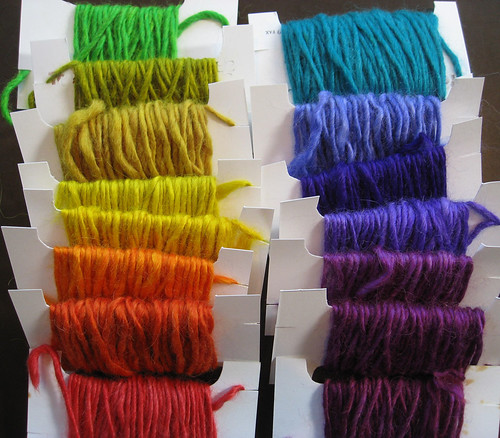Last night I decided to dye some wool. I don't use a lot at a time for embroidery work, but I do love to use beautiful textures. Buying full skeins of all the colors just isn't cost effective for me, so why not buy one skein of gorgeous fiber, separate it into smaller bits and dye them? This is half alpaca, half silk, and has a sheen that doesn't show up in the photos. The dyes are the ones I bought when I visited Peru two years ago (see these posts). I'm traveling next week and I want a project for the road, so now I have some supplies.

Dyed in the wool = someone who is unwavering in their principles. Getting back to Carolyn Myss, she writes that living an honorable life comes at a cost. You must be willing to stand up for what is right, regardless of how it affects your comforts. Disasters -- such as Japan's nuclear crisis, or the ruined levies in Hurricane Katrina, for that matter -- take place because corporations (or politicians) are willing to accept even catastrophic future risks rather than impact their bottom line today. Carolyn's piece urges a sea change in that line of thinking.
And by the way, none of this has anything to do with chess (at least for now).

No comments:
Post a Comment